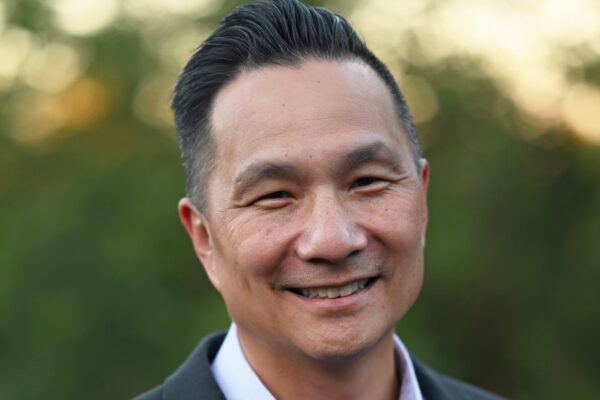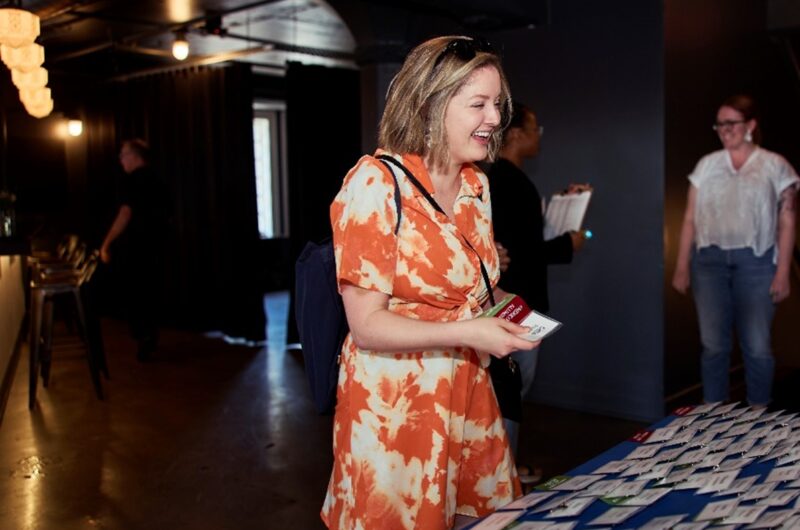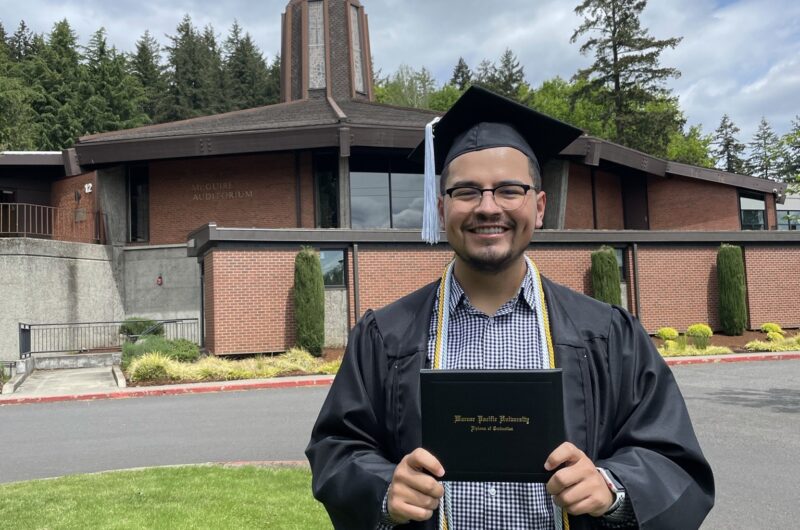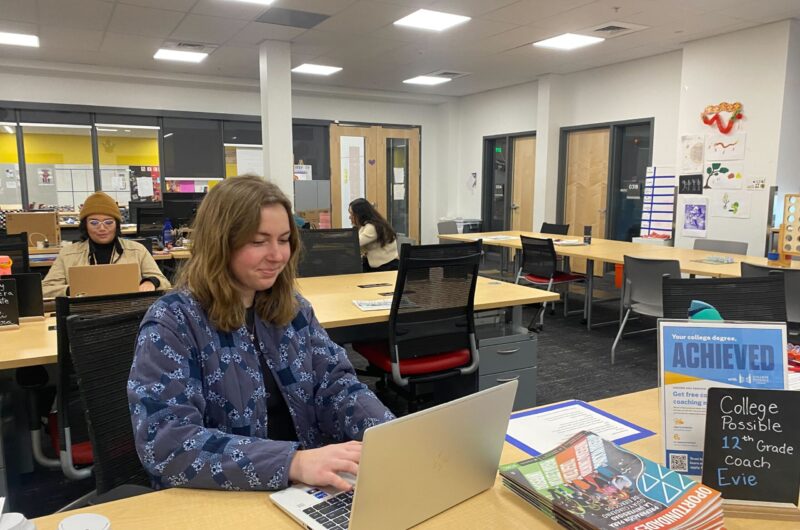Dear College Possible Community,
My first 90 days at College Possible Oregon have been filled with inspiring moments. As you might expect from a new director, I’ve spent the last few months listening to our dedicated staff, strong education partners, students and their families, and committed supporters to grasp the depth of student impact and what community partners hope for in communities throughout Oregon. I’ve been especially inspired by the way College Possible students and their families speak about the personal impact of College Possible.
At a recent family engagement night hosted at Reynolds High School, I had a very meaningful conversation with a student and her family. When talking about what the next years with College Possible would look like, I walked through the expectations and outcomes of our hands-on coaching, sharing that College Possible students graduate at twice the rate of their peers and are able to secure higher-paying, upwardly mobile jobs. Still, it would be a long road ahead, filled with many coaching sessions, scholarship applications and ACT practice exams.
The student’s parent responded: “We won’t give up. This changes everything for us. We want more for her.” I then looked at the student, who was nodding enthusiastically. It was as if she was saying she was all in—all in on claiming her place and value in the world for herself, her family, and the community she’ll give back to one day.
In less than 30 seconds, this family articulated in the clearest terms why College Possible has been relentlessly pursuing educational equity over the last decade. Ultimately, it’s about more than a piece of paper at the end of one’s education—it’s about students realizing their capabilities and unabashedly pursuing their aspirations for higher education and beyond. It is this “more mentality” that will cascade generationally to their families and their respective communities.
Research reveals that when the first person in a low-income family experiences college success through our programming, they empower their community to achieve tangible economic mobility, or what this family so beautifully called the “more.” We know that in the United States, bachelor’s degree holders earn $25,000 more annually than their peers without a bachelor’s degree,* and nationally, 25% of College Possible scholars are reaching graduate-level training and earning $100K+ post-graduation.**
Equally important is data showing that more than 75% of College Possible students surveyed shared that they give back to their communities in leadership roles because of the profound social and economic mobility gained through their education. I love what Dr. Charles Roessel, president of Diné College says about higher education transcending individual impact, becoming “a degree not just for me, but for my family, friends, and community.” That’s the ripple effect that equitable education access offers.
At College Possible, it’s our privilege to empower students to resist the narrative that says they should seek just enough to get by. Through each financial aid workshop, essay draft, campus visit and job shadow, students are thriving on the path to college and building futures filled with limitless opportunities. They’re discovering just what more means.
As you ring in the new year with friends and loved ones, I hope you’ll take a moment to reflect on the fact that thousands of students you’ve supported at College Possible are entering each stage of their education with a profound boldness that they never thought was possible…in part because you said college is possible.
It truly is my honor to partner with you to create such an enduring impact for College Possible scholars and alumni in Oregon. Thank you so much for believing in the next generation. We can’t wait to continue in this important work in 2024.
Wishing you a safe and merry holiday season,
John Chang
Executive director, College Possible Oregon
*Lumina Foundation, 2015. **College Possible Alumni Survey, 2019.



